Oprah Wakes Up Without an Alarm Clock—Here’s How You Can, Too

Talk show host turned media and business mogul Oprah Winfrey knows a thing or two about living her best life. That’s why, when she shares a sneak peak into her daily routine, people tend to perk up and listen. In 2017, Oprah shared one surprising detail about her mornings that seemed especially relevant to the self-made billionaire’s successes: Every day, she wakes up early without an alarm clock, the star told The Hollywood Reporter.
“I have never set an alarm, I don’t believe in them. They are… alarming!” Oprah told the publication. “I put the number in my mind and I wake up before that, usually between 6:02 and 6:20, because the dogs are trained to go out around that time,” she added.
Though Oprah’s morning routine is likely just one ingredient in the secret sauce of the star’s productivity, early wake times are widely associated with high-achieving people. It stands to reason that the rest of us might also benefit from trying out the morning habit—not least because sound sleep is also linked to a wide range of health perks. Read on to learn the seven steps to waking up early without an alarm, so you can make the most of your mornings—and the rest of your day—like Oprah.
READ THIS NEXT: If You Sleep in This Position, You Could Be Hurting Your Spine, Experts Warn.
Maintain a consistent sleep schedule.
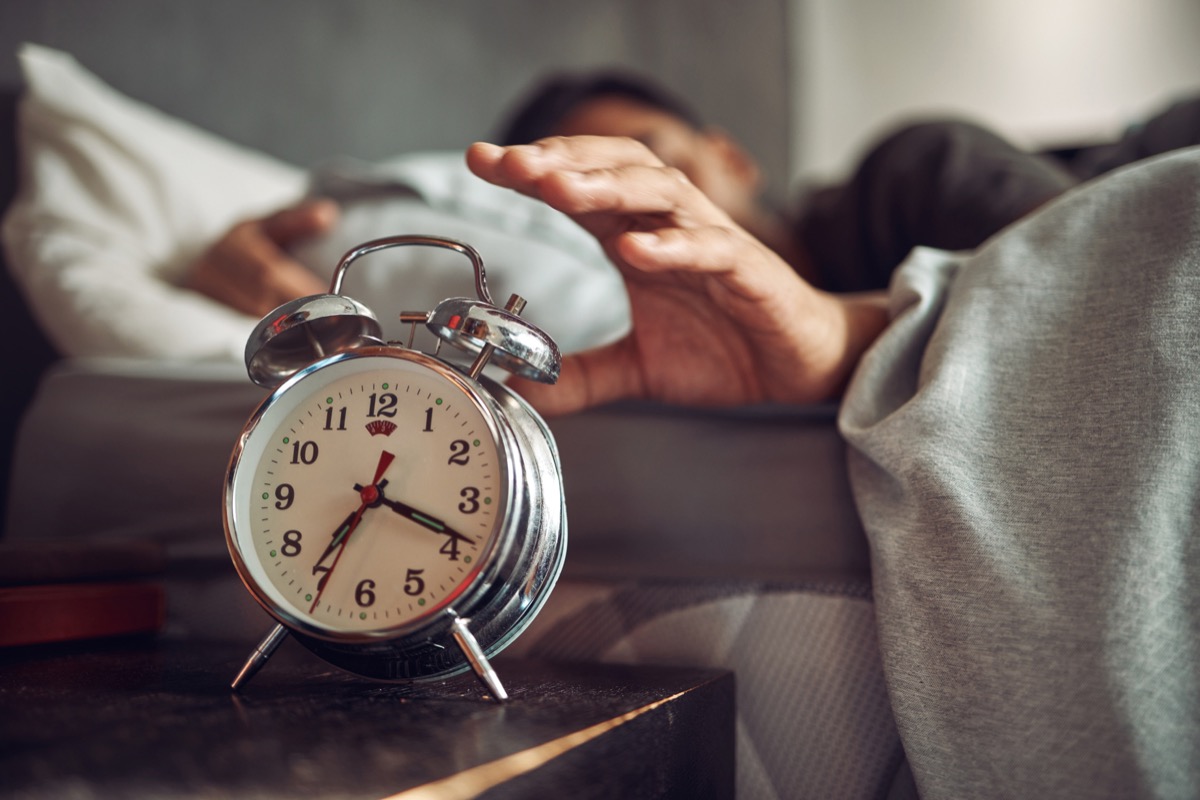
Even if your goal is to start waking up without an alarm clock, it’s still an important tool to use in training yourself to wake up naturally. By setting your alarm for a consistent time in the mornings—including on the weekends—you may find that you begin rising a few minutes before it goes off.
Georgina Wysiecki, MSW, MBA, a Vancouver-based social worker and sleep consultant, says it’s equally important to go to bed at the same time every night. “It can help your brain separate the day from the night, clear your mind and body of the day’s stresses, and help you relax into sleep, as well as contribute to consistent rhythms of your day,” she tells Best Life.
By maintaining a regular sleep schedule, your body will come to recognize its natural sleep and wake cues. “Consistency helps regulate your internal clock and promotes better sleep quality,” says James Walker, a physician and contracted medical advisor for Welzo.
READ THIS NEXT: Snacking on This Helps You Lose Weight and Sleep Better, New Study Says.
Prioritize sleep duration.
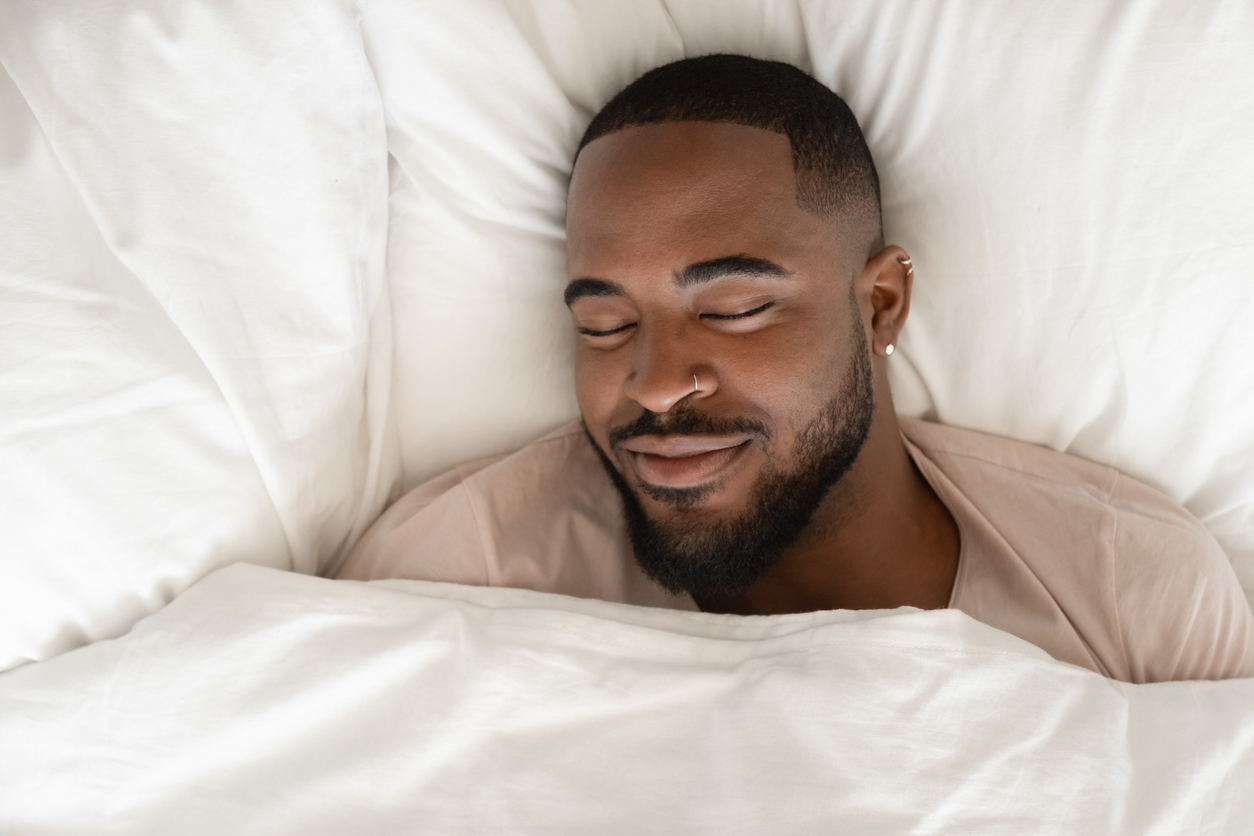
Waking up early shouldn’t mean you feel deprived of sleep—you’ll likely struggle to wean yourself from your alarm if you’re not getting enough hours of rest.
“Figure out how much sleep you do best with, not just how much you can ‘get by’ on,” suggests Catherine Darley, ND, a naturopathic doctor with The Institute of Naturopathic Sleep Medicine, Inc. in Seattle, Washington. “Think in terms of how much sleep has you cognitively sharp, with a quick reaction time while driving, feeling energetic, and emotionally even-keeled. Then schedule that amount of sleep time into your lifestyle,” she tells Best Life.
Darley notes that most adults need between seven and nine hours of sleep per night, but that roughly 35 percent of adults get six hours or fewer, resulting in significant sleep deprivation.
“If it’s been so long since you were well rested that you don’t know how much sleep you do best with, alternatively you can go to bed 15 minutes earlier every couple days until you feel rested,” she suggests.
Optimize your sleep environment.

Maintaining the right environment for sleep can also improve sleep quality and duration. This should in turn make you more likely to wake up naturally in the mornings.
“Create a sleep-friendly environment by keeping your bedroom cool, dark, and quiet. Consider using blackout curtains or an eye mask to block out external light, and use earplugs or white noise machines to minimize disturbances,” says Walker. “Make your bedroom a calm and relaxing space. Consider using aromatherapy, such as lavender oil or a soothing scent, to help you unwind before sleep,” he suggests.
Let in natural morning light.
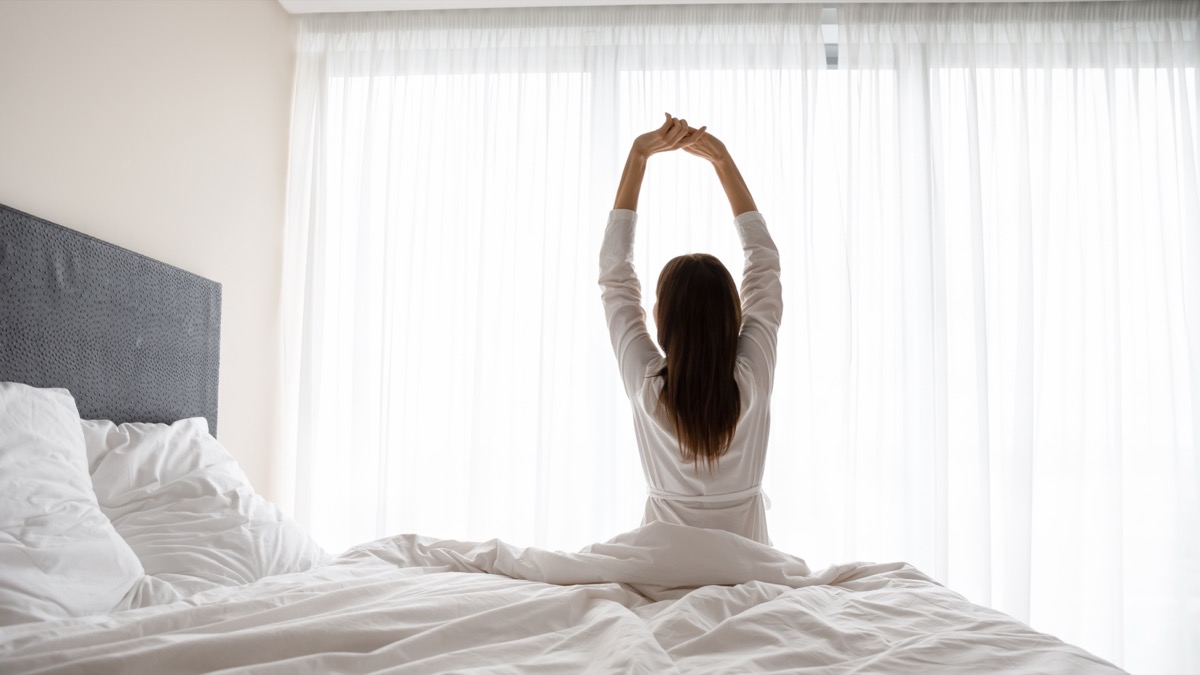
Oprah says she likes to get out early in the morning to spend time with her dogs and immerse herself in nature. This early exposure to sunlight likely helps her to wake up early and without an alarm clock every morning. Wysiecki notes that early morning sunlight is essential to supporting serotonin production, which is a precursor to melatonin. “Light is the strongest signal in our environment that impacts circadian rhythm,” she says.
That’s why you should always start your morning by opening your curtains or blinds to expose yourself to natural light, says Walker. “This helps regulate your circadian rhythm and signals your body to wake up,” he adds.
Limit night-time exposure to electronic devices.
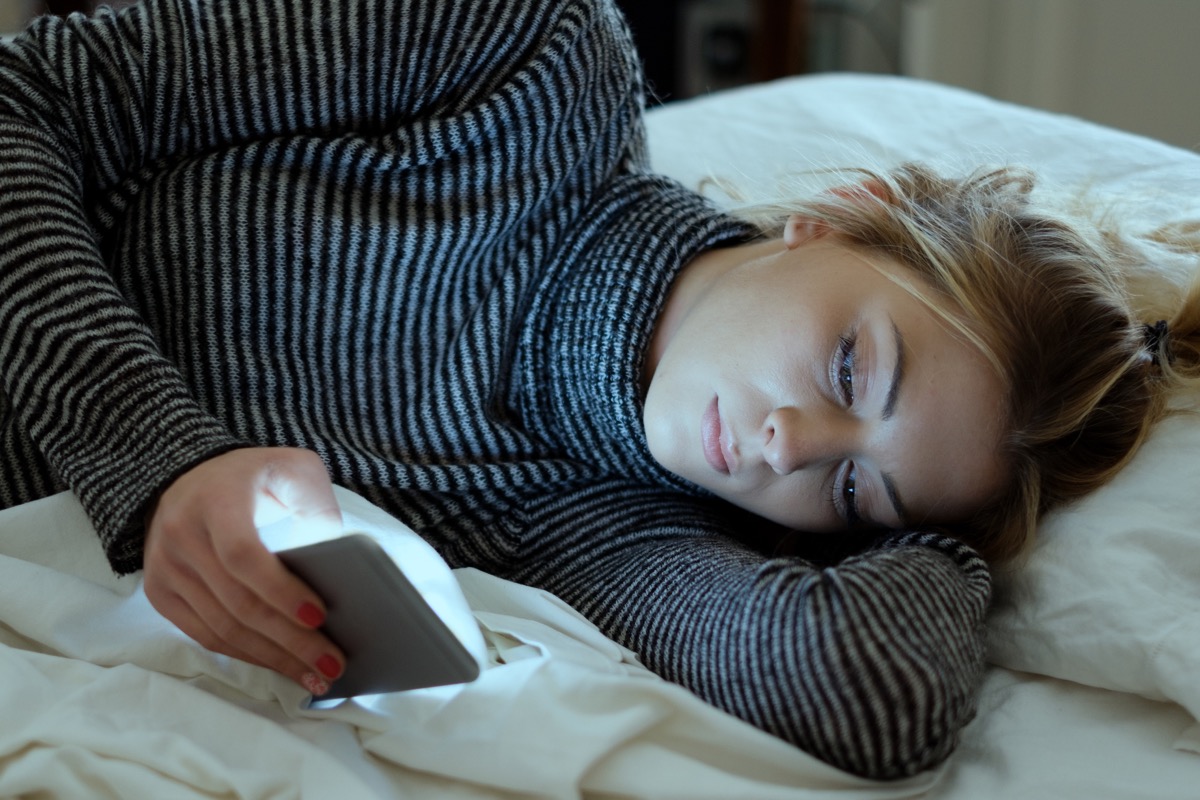
Just as light can be crucial to setting your circadian rhythm in the morning, it can also affect your ability to fall asleep at night. In particular, blue light emitting from your devices can trick the brain into thinking it’s still daytime, slowing the production of melatonin and making it more difficult to drift off to sleep.
“Avoid using smartphones, tablets, or computers close to bedtime, or use blue light filters or special glasses to mitigate the impact,” says Walker.
For more health news sent directly to your inbox, sign up for our daily newsletter.
Be mindful of what you eat and drink.

Your diet can also greatly influence your sleep habits, the experts say. “Eating at regular times and choosing food that supports sleep positively impacts our circadian rhythm,” explains Wysiecki.
In fact, certain types of food can help your body get a better night’s rest, she says. “It is important to ensure that we eat plenty of protein over the day, as this will help stabilize blood sugar levels and prevent night time wake-ups due to hypoglycaemia, which causes the body to produce adrenaline which is not conducive to sleep. Turkey, chicken, nuts, bananas, oats, kidney beans, eggs, and dairy are great foods for supporting sleep neurotransmitters like serotonin and melatonin, as they contain tryptophan and B complex vitamins,” she tells Best Life.
You’ll also need to limit your caffeine and alcohol intake—especially in the evening hours—since both can interfere with sleep.
Get regular physical activity.
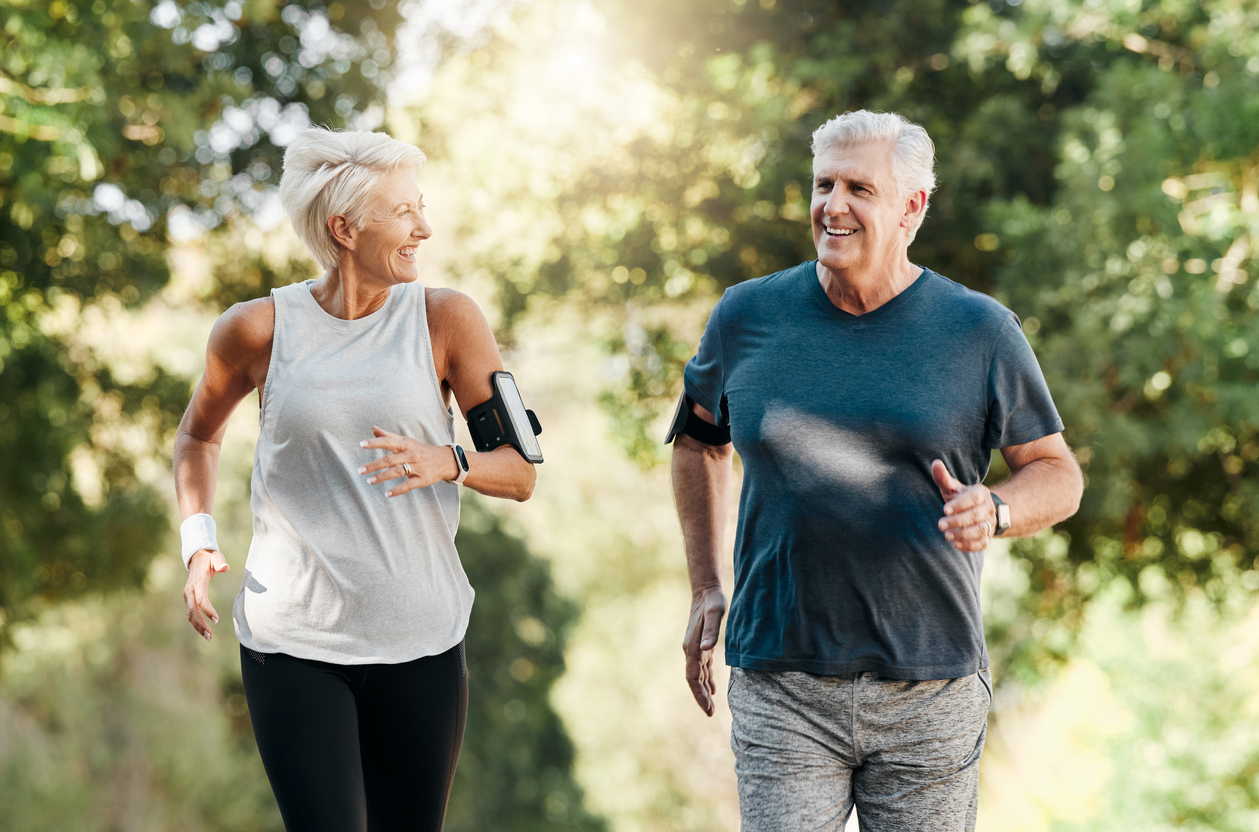
Oprah is the first to admit that she doesn’t like working out. “Here’s the thing about exercise, I still hate it so much,” the star told People in 2020. “I think everyone’s waiting to love it. You’re not going to love it but you do the thing you need to do to make yourself feel whole and well,” she told the magazine.
The experts say that not only is this important for your mental and physical health, it’s also crucial to establishing your circadian rhythm—and it could be one of the reasons that Oprah successfully wakes up without an alarm.
Walker suggests getting regular exercise, but avoiding vigorous exercise too close to bedtime. “Exercising earlier in the day can promote better sleep at night,” he notes.
However, he adds that not everyone will respond immediately to these changes. “Remember, it may take time for your body to adjust to waking up without an alarm clock. Experiment with these tips and find the strategies that work best for you. If you consistently have difficulty waking up or feel excessively tired during the day, it’s essential to consult with a healthcare professional to rule out any underlying sleep disorders or medical conditions,” says Walker.
Best Life offers the most up-to-date information from top experts, new research, and health agencies, but our content is not meant to be a substitute for professional guidance. When it comes to the medication you’re taking or any other health questions you have, always consult your healthcare provider directly.